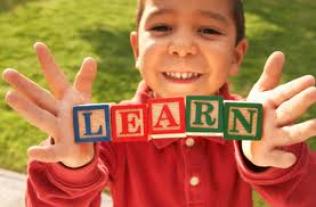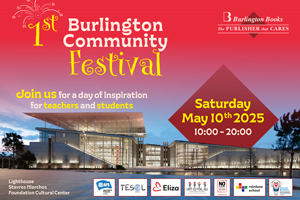As we glide through the month of May, I know that many teachers and students are steadily dreaming of how to spend their summer vacations. Some will be off to sleep-away camp, some will travel to faraway places, and many others are still trying to figure it out. But for many families, the summer will also bring a level of anxiety. In the age of budget cuts, the opportunities for quality programs and government subsidized summer jobs will be few and far between. According to the National Summer Learning Association, many low-income and underserved students will face two to three months' summer learning loss in reading and math, while affluent and better resourced students may show slight gains in reading over the summer because of their access to summer enrichment.
What does this mean?
It means that the kids with the least access to educational resources and high-quality teachers during the school year are at great risk of forgetting many of the things they've spent the last nine months learning. The cumulative effect leaves our most vulnerable students of falling further behind with each passing school year.
Tools to Fight Learning Loss
The challenges that emerge are even more evident when one considers the dearth of structured, low-cost academic summer activities for kids in middle school and beyond. Luckily, groups like the Harlem Educational Activities Fund (HEAF) are working to change all that. This summer, we will once again be providing our middle school students with an academic summer camp that is aimed not only at reducing the summer learning loss gap, but also positioning students to be ahead of the game when they return to school in the fall. As one student told me, "I complained about going to HEAF during the summer at first, but then when I got back to school, I kept raising my hand when others were stumped. I felt proud to be ahead of the class." Here are a few ways that we keep the kids coming back.
1) Thematic Approach
While we offer standards-based instruction in math and English language arts, we also work to develop a summer learning theme that engages both sides of the brain and requires problem-solving skills. Students write about math and use numbers to answer questions in ELA. In a testing culture, natural application of learning can sometimes be diminished, but we understand that these skills are vital to future academic and career success.
2) Collaboration with Kids
Young people are important players in our summer planning. Each year we ask the kids what they're curious about and what they wish they could learn more about in school. As a result, we've offered everything from Japanese to Green Urban Planning.
3) Everybody Out of Their Seat
We are wholly committed to project-based learning that has kids out of their seats and requires them to expand the classroom to the city itself.
Do Try This at Home
If you don't have the resources to launch a summer program in your community, make sure you arm parents with some great advice for keeping kids stimulated.
1) Summer Reading
Work with teachers across grades to establish a summer reading list for the entire school. To keep kids thinking, you might ask them to rewrite the beginning or ending of a book; write an autobiographical essay using the voice of a less prominent character in a book; or make a smart phone movie with friends that features characters from one of their assigned books. Don't just ask them to write about the book. Use summer reading as an opportunity to develop decoding, inference and critical thinking skills.
2) Scavenger Hunt
Most museums and zoos have at least one free or lost-cost day that families can take advantage of. Develop a "scavenger hunt" that brings families into these cultural institutions and provides them an opportunity to fully explore art and science in new and exciting ways.
3) Flash Cards
Yes, I know that in this modern age good old flash cards might seem antiquated, but daily review of basic math facts will go a long way in helping students to stave off summer learning loss. And throw in a few word problems while you're at it. You might even want to feature characters from students' summer reading list in those word problems just for good measure.
4) Current Events/Media
Assign some kind of research project or campaign-related activity that requires kids to create a visual and written journal of election year activities during the summer, when political conventions begin to dominate the news cycle. Have students present their reports at a publishing party in the fall.
Finally, there are a host of websites -- some teacher driven, some parent driven -- that offer all kinds of ideas to keep your kids on track each summer. So get out there and keep the learning going all year long.
By Danielle Moss Lee
"Originally published (5/17/12) © Edutopia.org; The George Lucas Educational Foundation
.edutopia.org
Τελευταία νέα
- 1st Burlington Community Festival: ΔΩΡΕΑΝ για εκπαιδευτικούς και μαθητές 10/5 - Ίδρυμα Σταύρος Νιάρχος
- EUROPALSO Εγκύκλιος 29/04/2025: Απογραφή ΚΞΓ σε OpenBusiness – ESB Online Exams for Students, Κυριακή, 1/6 – ESB Online Exams for Adults – Νέες Παροχές για ΚΞΓ ESB – Advisory Office – Βεβαιώσεις σπουδών – Τουρνουά Σκάκι, 10/5 – Υποχρεώσεις Μαΐου, Νέα ωρομίσθια
- Απογραφή Κέντρων Ξένων Γλωσσών: Διευκρινήσεις Europalso
- Απογραφή Λειτουργίας Φροντιστηρίων και Κέντρων Ξένων Γλωσσών στο OpenBusiness
- EUROPALSO - ΦΟΡΟΛΟΓΙΚΕΣ ΥΠΟΧΡΕΩΣΕΙΣ ΜΑΙΟΣ 2025
- EUROPALSO - Εγκύκλιος 15/04/2025: Πασχαλινές Ευχές – ESB Online Exams for Students, Κυριακή, 1/6 – ESB Online Exams for Adults – Νέες Παροχές για ΚΞΓ ESB – Βεβαιώσεις σπουδών – Πασχαλινά σποτ – Τουρνουά Σκάκι, 10/5 – Υποχρεώσεις Μαΐου, Νέα ωρομίσθια
- EUROPALSO Εγκύκλιος 11/04/2025: Αποτελέσματα Αρχαιρεσιών – ESB Online Exams for Students, Κυριακή, 1/6 – Στελέχωση Εξεταστικών Κέντρων – Νέες Παροχές για ΚΞΓ ESB – Πασχαλινά σποτ – Τουρνουά Σκάκι, 10/5 – Φορολογικά, Νέα ωρομίσθια
- Δελτίο Τύπου Europalso – Καταδίκη Παράνομων Πρακτικών Απόκτησης Πιστοποιήσεων και Διάψευση Σχετικών Ψευδών Ρεπορτάζ για Κέντρα Ξένων Γλωσσών
- EUROPALSO - Αύξηση κατώτατου μισθού, από 1/4/25 – Τα νέα ωρομίσθια και οι αμοιβές
- Εγκύκλιος 28/03/2025: Ημερομηνίες Γραπτών Εξετάσεων – Online Εξετάσεις ESB για μαθητές, Κυριακή, 1/6 – Στελέχωση Εξεταστικών Κέντρων – Νέες Παροχές για ΚΞΓ ESB – Τουρνουά Σκάκι, 10/5 – Νέα ωρομίσθια & Αμοιβές προσωπικού ΚΞΓ



